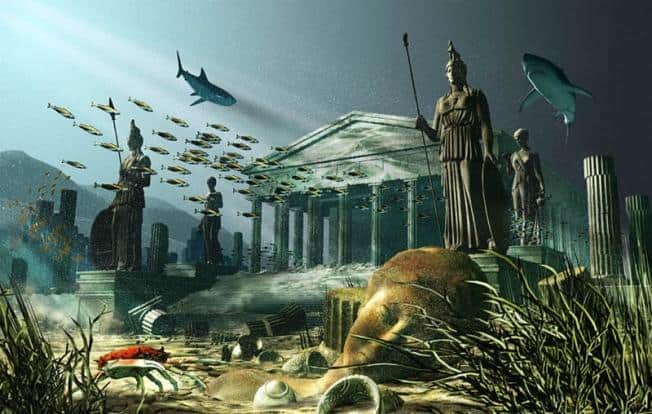
ADVERTISEMENT - CONTINUE READING BELOW
29. Archaeological Evidence or Lack Thereof of Atlantis’ Existence
Serious scholars were dismissive of Ignatius Donnelly, but some writers took his version of Atlantis, and ran with it. Most prominent among them in the early twentieth century was a mystic named Madame Blavatsky, and a famous psychic named Edgar Cayce. Cayce imparted a Christian spin to the story and gave psychic readings in which he claimed that many of his clients had led past lives in Plato’s island. He also predicted that Atlantis would be discovered in 1969. It was not, despite Plato’s specificity about Atlantis’ location. The philosopher wrote of an island bigger than Asia (what Greeks called Asia Minor back then) and Libya put together, situated in the Atlantic Ocean at the mouth of the Mediterranean Sea, just past the Straits of Gibraltar.
Advocates of a “real” Atlantis argue that he was mistaken, or that for his own reasons, he deliberately sought to mislead. Despite great advances in a submarine, deep-sea probe, oceanography, and ocean floor mapping technologies, no evidence, archaeological or otherwise, has emerged that Plato’s fable described a real place. Although the ocean deep is still full of mysteries, it is difficult, to say the least, to miss a submerged landmass bigger than Asia Minor and Libya. Nonetheless, the notion of a lost advanced civilization is so fascinating, and so readily titillates people’s imaginations, that it is highly unlikely that the legend of Atlantis will die off anytime soon.

